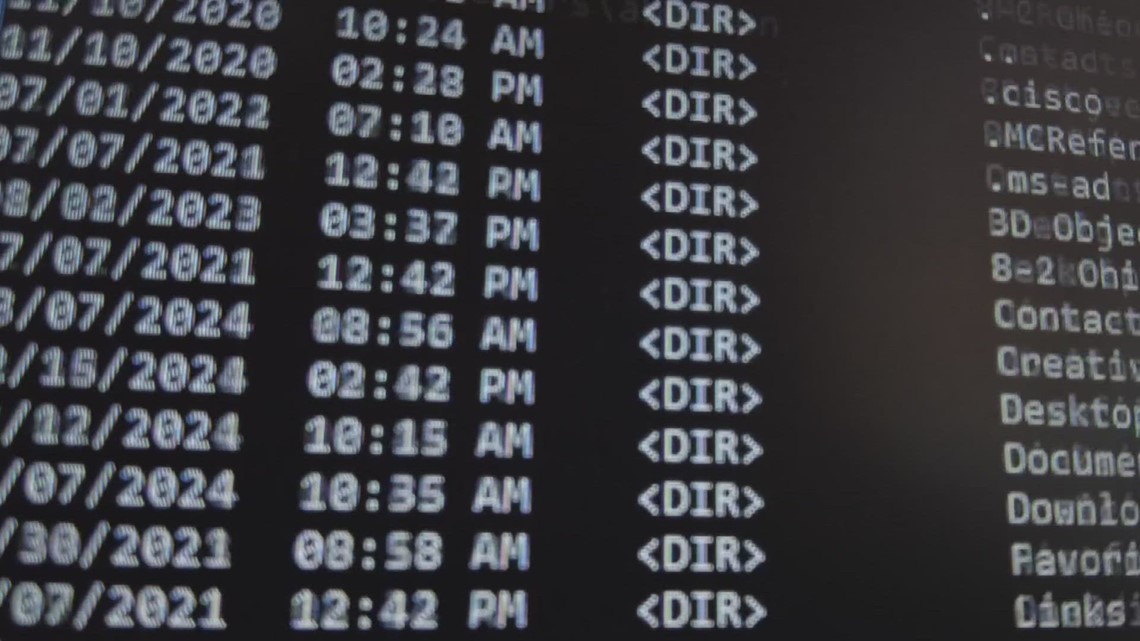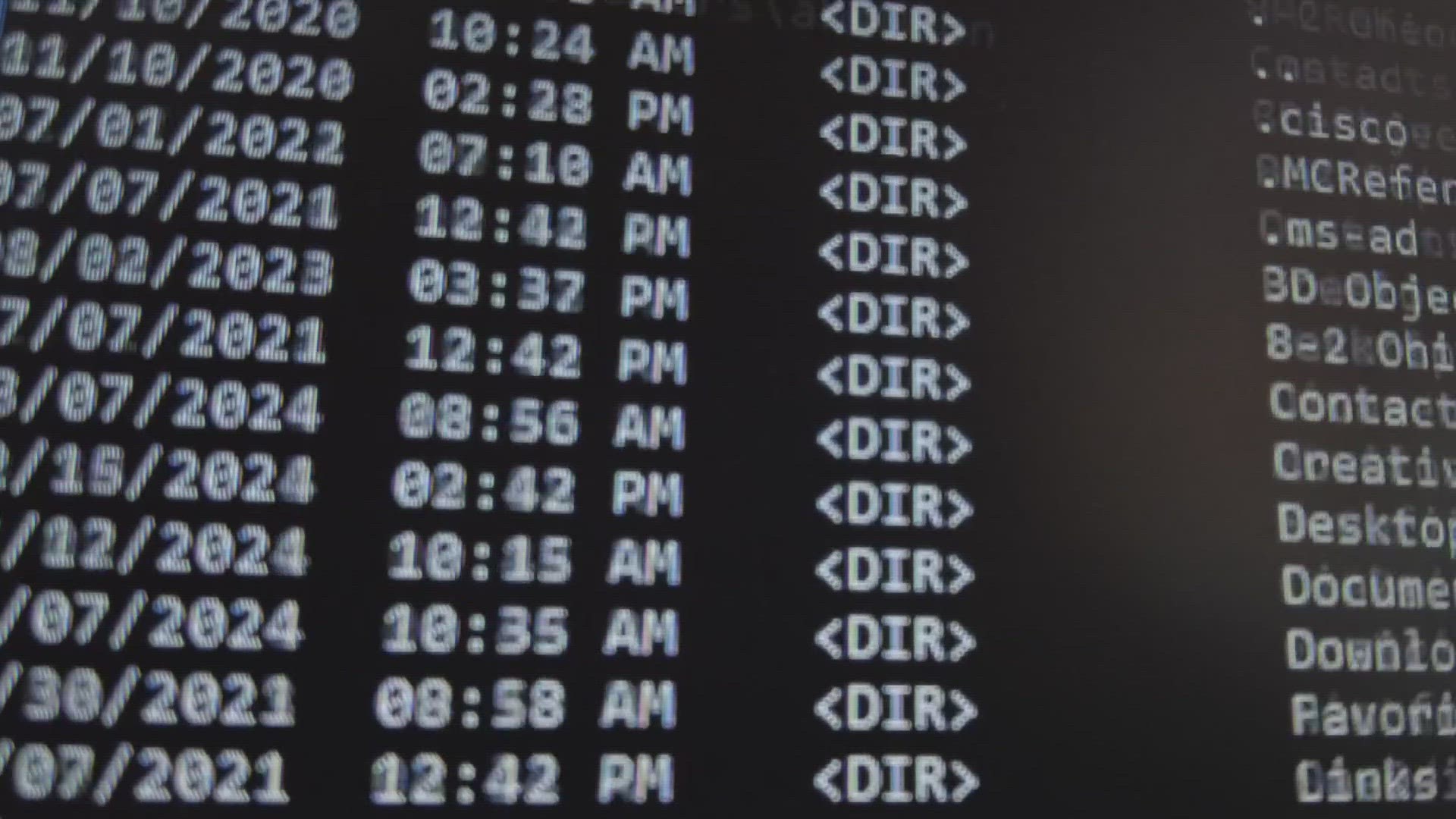WESTMINSTER, Colo. — Diane Peltier is embarrassed she fell for it. But she wants you to hear her story, hoping it may save someone else the pain she’s gone through over the last week.
She’s one of thousands who’s fallen for the so-called phantom hacker scam. The FBI told Steve On Your Side that scam and other imposter scams like it cost more than 51,000 Americans more than $1.3 billion in 2023 alone.
Last Wednesday, she was paying bills online when her computer froze and started flashing. A message on the screen said she had been hacked – and she should call Microsoft to unlock the computer.
“It's bells and sirens and everything,” Peltier said.
A phone number for Microsoft appeared on the screen. So Peltier trusted it and called.
“They're going to help me,” she said the man on the line told her. “They're going to take care of me. They're going to be certain that I'm going to be OK.”
She said before long the call-taker told her to go to a website and click on a link. By then, he had full control of her computer and started showing her bank account claiming they were getting hacked.
Peltier said the scammer then told her he could connect her directly to her bank’s fraud department. Before she knew it, a woman named Alison was on the line, claiming to be a member of US Bank’s fraud department.
“She says that she was there to help me,” Peltier said. “She's going to protect my funds. But I had been hacked. And they came up and they said ‘Do you know that your money was hacked?”
“And she says, 'You need to go to the bank. You need to go to the bank. We need to get your money.'”


Peltier said she drove to her bank with Alison on the phone, withdrew money and on her instructions, took it to a nearby cryptocurrency machine. She said she thought she was depositing the funds in a safer place.
It was then she realized the money was gone. When she tried to call the numbers back, they were all disconnected.
“I should have hung up with everybody,” Peltier said. “I should have unplugged the computer. I wasn't thinking right. I wasn't thinking clearly.”
Vikki Migoya, spokeswoman for the FBI’s Denver division, said the same phantom hacker scam recently cost a victim in El Paso County $99,000.
The FBI has found more than half of those impacted by this particular scam are over the age of 60. They recommend anyone with a senior in their life share information about this scam and tips on how to prevent it.
“No bank is going to ask you to pay something in gift cards to transfer your money to an overseas account to pay anything in cryptocurrency,” Migoya said. “That is a sure sign that this is a fraud.”
Tips from the FBI:
- Do not click on unsolicited pop-ups, links sent via text messages, or email links or attachments.
- Do not contact the telephone number provided in a pop-up, text, or email.
- Do not download software at the request of an unknown individual who contacted you.
- Do not allow an unknown individual who contacted you to have control of your computer.
- The US Government will never request you send money to them via wire transfer, cryptocurrency, or gift/prepaid cards.
Migoya also suggested searching for a reputable source for contact information for help. If you’re looking to contact your bank, for instance, call the number on the back of your debit card.
All of those tips are too late for Peltier. But she hoped her tale stops someone else from losing a chunk of their life savings.
“It was the window of opportunity,” she said. “They caught me in a weak moment. They took advantage of me and they won.”
Have a tip about a scam or consumer issue for Steve On Your Side? Send a tip to 9NEWS Consumer Investigator Steve Staeger.
SUGGESTED VIDEOS: Steve on Your Side

